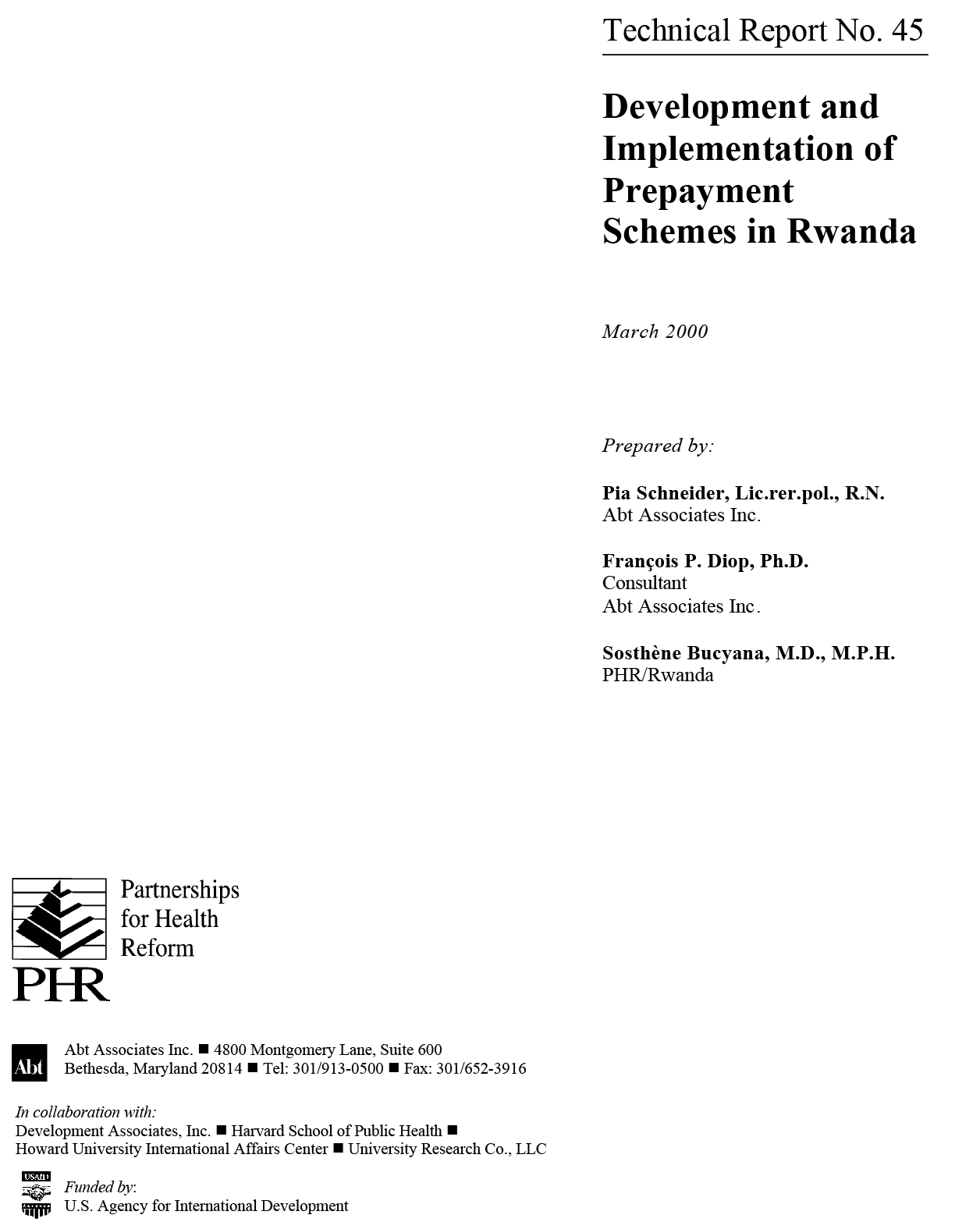
Resource Library
Development and Implementation of Prepayment Schemes in Rwanda
Nearly three-fourths of the Rwandan population falls below the poverty line. It is no surprise that a poor population consumes less health care when user fees are charged. Primary health care consultation rates for rural populations dropped to 0.28 per capita per year in 1998 and to 0.24 in 1999, prompting the Ministry of Health to test prepayment schemes in three districts. The schemes focus on improving equity in access to quality care for rural populations, strengthening financial management in health centers, and increasing community participation in health financing management. Members pay an annual premium of FRw. 2,500 per family of up to seven members. The benefit package includes all services and essential drugs provided in public and mission health centers and ambulance transfer to the district hospital where a limited package of services is offered. Prepayment schemes pay health centers a monthly capitation rate. The schemes are being evaluated in a quasi-experimental study using quantitative and qualitative data. Preliminary findings show that in the first six months, more than 50,000 individuals, or 4.5 percent of the target population, joined prepayment scheme plans. Members seek care more often than non-members and contribute a higher per capita contribution to health care. Because members seek care earlier, they need fewer drugs and recover faster, an observation supported by health center personnel. Prepayment schemes are a viable tool to improve financial autonomy in health centers where average fixed costs remain low, and members use care moderately.
Resource Type : Report
Country : Rwanda
Year : 2000-08-26T17:30:00
Language : English
Project : SHOPS


